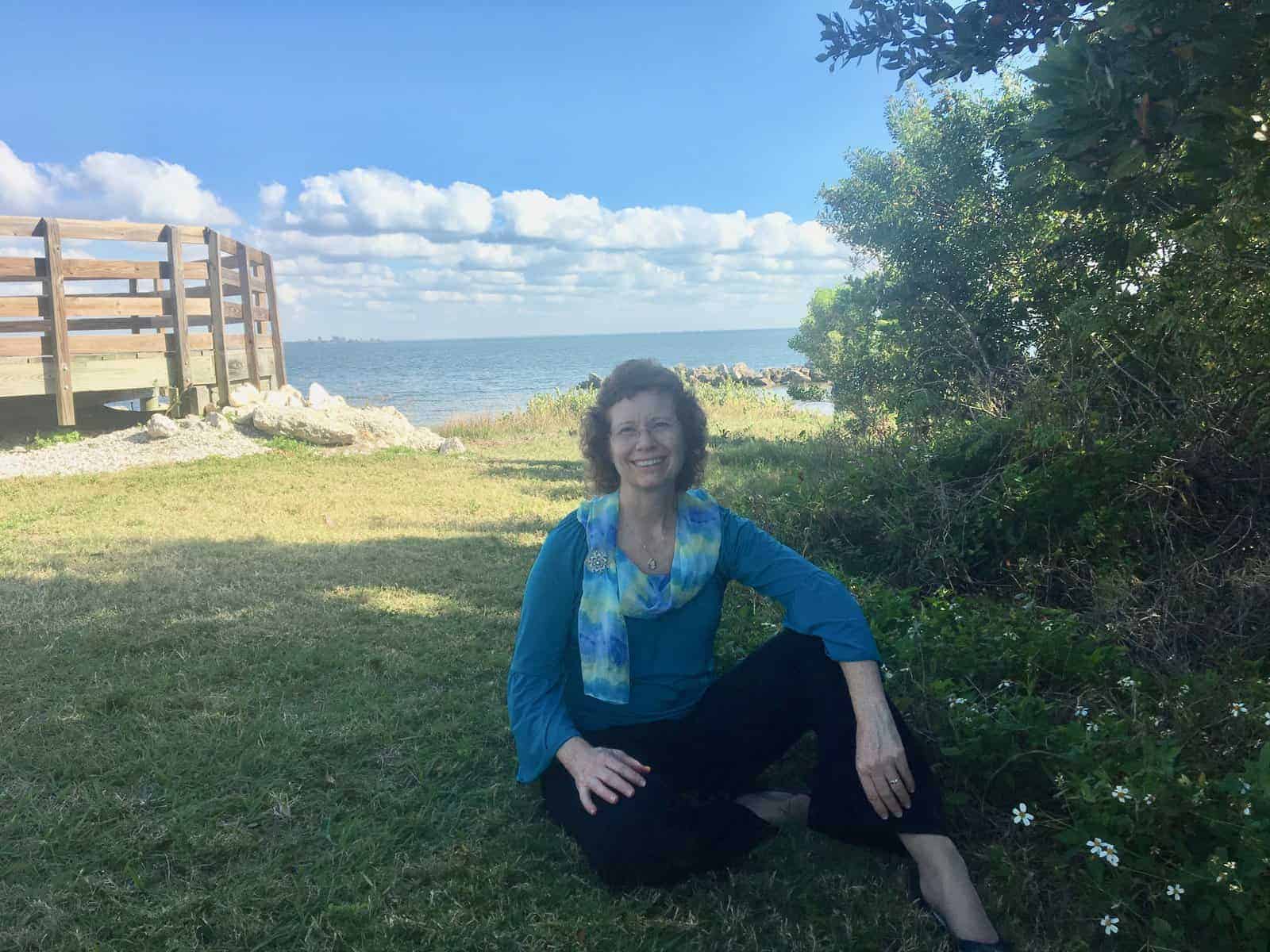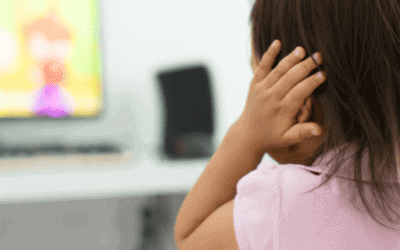In 2020, unexpected vision loss changed my life. My awareness of the vision loss occurred within a few minutes. As sudden as looking at a Banyan tree and realizing its roots grow down from its branches, unexpected vision loss turned my life upside down.
I was born with an eye that floated up, my right eye. Whenever I tried to read, print blurred and doubled causing fatigue through second grade. Copy work was impossible. Sometime around age eight, my brain suppressed part of my vision. The result, print stayed clear and single.
As we age, difficulties return. Unfortunately for me, returning to college at age 48 was too much for my eyes. I felt the visual fatigue. Additionally, print began to blur and glasses failed to help. When difficulties continued after graduation, I knew that vision therapy would help print stay clear and single. Thus, two years before I lost my eyesight, I completed vision therapy. After vision therapy, I was thrilled that the print stayed clear! At age 52, there were finally no limitations preventing me from reading and working on the computer.
Unexpectedly about a month after my knee replacement surgery, I noticed that words once again blurred while I was reading. Unfortunately, I assumed I could wait before going to my neuro-rehabilitation optometrist. Life was tough enough regaining my ability to walk.
How My Life Changed After Vision Loss
How did my life change after unexpected vision loss? Vision loss affected me physically and emotionally
Four months after my knee surgery, I experienced intense pain in my eyes. Oh no! This time, I noticed a black area preventing me from seeing anything to the left of my nose. My anxiety shot up sky-high. By the time I saw a retina specialist, the black area was much larger. Later, I learned my eye was bleeding due to a noncancerous growth, a polyp, in the back of my eye. What I experienced next was very unexpected.
Although I work with clients to help them understand what happens when their eyes fail to work together, I was unprepared for the physical impact of sudden vision loss and how it would change my life. I thought I understood what to expect.
Intellectually, yes.
Physically, no.
Fight or Flight?
I always thought that knowing the cause of one’s anxiety protected the body from the fight or flight response. Now I know better. Regardless of how my body reacted, I was determined to enjoy life. Going to our sand festival is one of my favorite yearly events. The details in the sand sculptures are magnificent.

Shortly after I started to lose my vision, I felt my whole body go into fight or flight anxiety whenever I rode in the car. During the past 30 years, I felt perfectly safe while my husband drove our car. What the heck?
Despite my knowledge, it still took me a few days to realize that my eyes were unable to keep up with motion. Thus, the anxiety. Thank goodness I knew to look down. As my vision loss progressed, I began to experience almost immediate motion sickness. Often, even before my husband drove out of our neighborhood. Avoidance was the best answer. I simply stayed home.
Do you know that both eyes must work well together to instinctively move, to know the distance between near and far? For example, the distance of one’s eyes from the ground helps you instinctively know how much to pick up your feet. I wondered,
How do others emotionally cope when they fail to understand why they are feeling anxious?
Before Vision Loss Changed My Life
Before vision loss changed my life, walking was a wonderful way to unwind. Now, walking wound me up. Nevertheless, I enjoyed our yearly Gasparilla Pirate Festival with the parade of boats. Ironically when I walked, I felt like the ground moved towards and away from me, rock-and-roll, like I was riding in a boat.

When depth perception is disrupted, it is difficult to consistently know how far away your feet are from the ground. Before I loss my vision, stationary objects stayed in place. I enjoyed riding in a car, reading, and visiting new places and short hikes.
Now, my vision loss made walking in parking lots an unexpected challenge. If I glanced anywhere, blurry vision stopped me in my tracks. I was unsure of my next step. I dare not turn my head to the right or left. When I forgot, I lost my sense of balance. Since I had just recovered from a full knee replacement, the idea of falling created additional anxiety. I knew that somewhere in front of me there were hazards like curbs, other people, and moving cars. However, I was unsure of exactly how far away.
To this day I am still astounded by my body’s reaction after sudden vision loss changed my life. Emotionally, I no longer enjoyed trips away from home. Despite a positive mindset, I never knew when my body would tense up and make me feel nauseous. Despite understanding why walking was so difficult, anxiety still gripped me. When I safely slid into the car seat, the intensity of unexpected fatigue made me want to take a nap. I closed my eyes. Would I lose my eyesight?
Vision Loss Altered My Life
Until vision loss altered my life, I took all the benefits of vision for granted. What were those benefits? My independence and emotional health. Never could I have imagined that I would have to work at walking, reading, and feeling safe. To improve my emotional health, I found myself talking out loud. I knew it helped to tell myself that I was safe with my husband by my side. We enjoyed music while watching sunsets. It also helped to share my experiences with a close friend who understood due to her personal experiences. Best of all, we trusted each other knowing that what was shared would stay confidential.
Often, I found that avoidance was my only option. After just a few minutes, close-up visual work like reading gave me a headache. Surprisingly, even using a knife created fatigue. The kind of fatigue that makes you want to curl up and sleep. Thus, chopping was delegated to my sweet husband. During our first years of marriage, we always fixed meals together. It was sweet to work together once agin in the kitchen. A bit of a silver lining.
Eventually, I became accustomed to the ways my vision loss changed my life. I began to feel safe again. Thank goodness I knew to avoid driving and walking by myself. I understood that I needed extra time to respond to keep myself and others safe. Since I was unable to drive, the Love of my life took me everywhere. Thankfully, I always had an arm to lean on and another pair of eyes to keep me safe. Every day, we walked together holding hands. Another silver lining. When life throws you a curve ball, your response is the most important part of your journey.
Pain
Life is so unpredictable and full of unexpected changes like pain. The first shot in my eye to stop the bleeding was a ten on the pain scale. My body let me know it was very unhappy. The next day, I experienced my first pain-numbing migraine. It totally freaked me out. I loss so much feeling on one side of my face that I went straight to the emergency room. Thankfully, it was “just” a migraine and not a stroke. This life-changing, vision-loss journey was all a bit too much.
Emotional Health
Thankfully, I knew I needed to protect my emotional health. I decided to develop a plan to send happy signals to my brain. It was time to turn my life right side up. I swam and swam using a kick board. While completing in-home physical therapy, I listened to music. My sweet friends prayed over the phone with me. My best friend kept me laughing. Somehow without gaining weight, we tried new recipes to tantalize our taste buds. One of our favorites was sauerkraut, which complemented my favorite dish, corn beef.
In the safety of our home, I stayed connected with friends and family. Thank goodness for FaceTime. My adorable, seven-month-old granddaughter was so funny! Her belly-laugh was contagious. She learned to recognize our face and blow good-bye kisses.

I thank the Lord for the presence of my husband. Before COVID, he was supposed to work overseas for a year. We laughed together watching light-hearted, hilarious YouTubes and shows. I am blessed to have him by my side.
Not Again
Just in case you were wondering; I was still getting shots in my eye. Two months after we moved, I learned that the shots had stopped the bleeding. A huge win along my life-changing, vision-loss journey. From that point on, I continued to receive shots to dissolve the blood that was lingering in my eye. If the shots were unable to dissolve the blood, the alternative was eye surgery. Prayers!
As the shots caused the blood to dissolve and leave my eye, I slowly regained my vision! Unfortunately, I had to fight emotionally and physically when the following occurred:
- Headaches started after only reading five minutes
- Neck pain became my constant companion
- Sudden fatigue after pushing through a visual task
What the heck? I expected mental fatigue, not physical fatigue that I felt to my core.
Thankfully, unexpected events with twists and turns resulted in a miracle. You will never guess what restored my vision.
Visual Behavioral Clues
Do you get headaches while reading, struggle to keep vision clear and single, or bump into things? If so, use the national search engine on my website’s resource page to find a developmental optometrist near you. If you have experienced a concussion or have hearing loss, I recommend a neuro-rehabilitation optometrist.
Help is also available if you also have sound intolerance with or without hearing loss, learning or behavioral challenges. When the hearing system is weak from past or ongoing poor ear, nose, or throat health, I use auditory integration training to strengthen your hearing system.
Start by scheduling a free phone consultation or complete a Moore Auditory-Visual Questionnaire with your loved one, student, or client to learn more about the intensity and frequencies of behaviors associated with :
- Sound intolerance
- Hearing loss with or without sound intolerance
- Auditory processing difficulties
- Visual processing difficulties







0 Comments